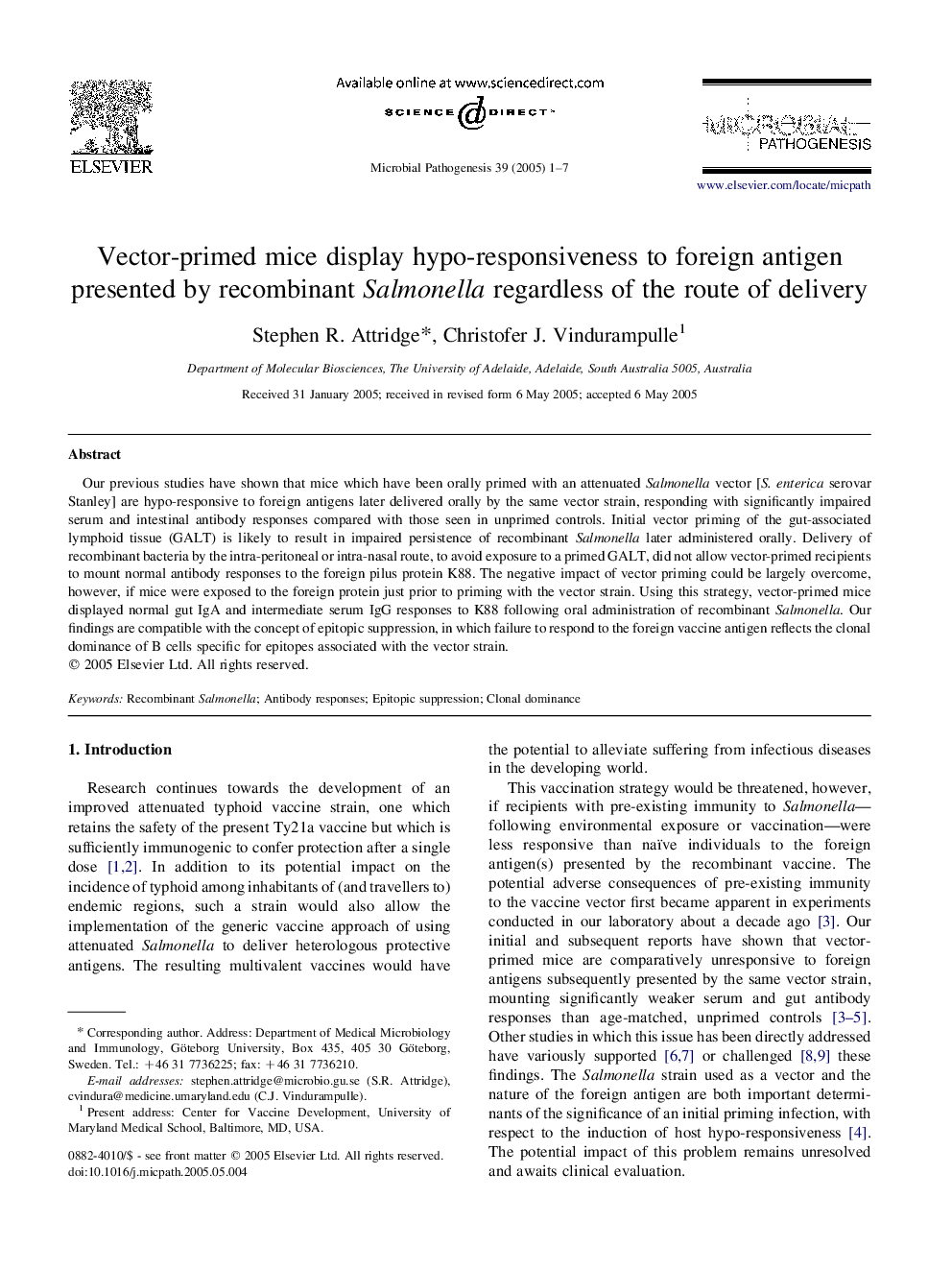| Article ID | Journal | Published Year | Pages | File Type |
|---|---|---|---|---|
| 9283805 | Microbial Pathogenesis | 2005 | 7 Pages |
Abstract
Our previous studies have shown that mice which have been orally primed with an attenuated Salmonella vector [S. enterica serovar Stanley] are hypo-responsive to foreign antigens later delivered orally by the same vector strain, responding with significantly impaired serum and intestinal antibody responses compared with those seen in unprimed controls. Initial vector priming of the gut-associated lymphoid tissue (GALT) is likely to result in impaired persistence of recombinant Salmonella later administered orally. Delivery of recombinant bacteria by the intra-peritoneal or intra-nasal route, to avoid exposure to a primed GALT, did not allow vector-primed recipients to mount normal antibody responses to the foreign pilus protein K88. The negative impact of vector priming could be largely overcome, however, if mice were exposed to the foreign protein just prior to priming with the vector strain. Using this strategy, vector-primed mice displayed normal gut IgA and intermediate serum IgG responses to K88 following oral administration of recombinant Salmonella. Our findings are compatible with the concept of epitopic suppression, in which failure to respond to the foreign vaccine antigen reflects the clonal dominance of B cells specific for epitopes associated with the vector strain.
Keywords
Related Topics
Life Sciences
Immunology and Microbiology
Microbiology
Authors
Stephen R. Attridge, Christofer J. Vindurampulle,
